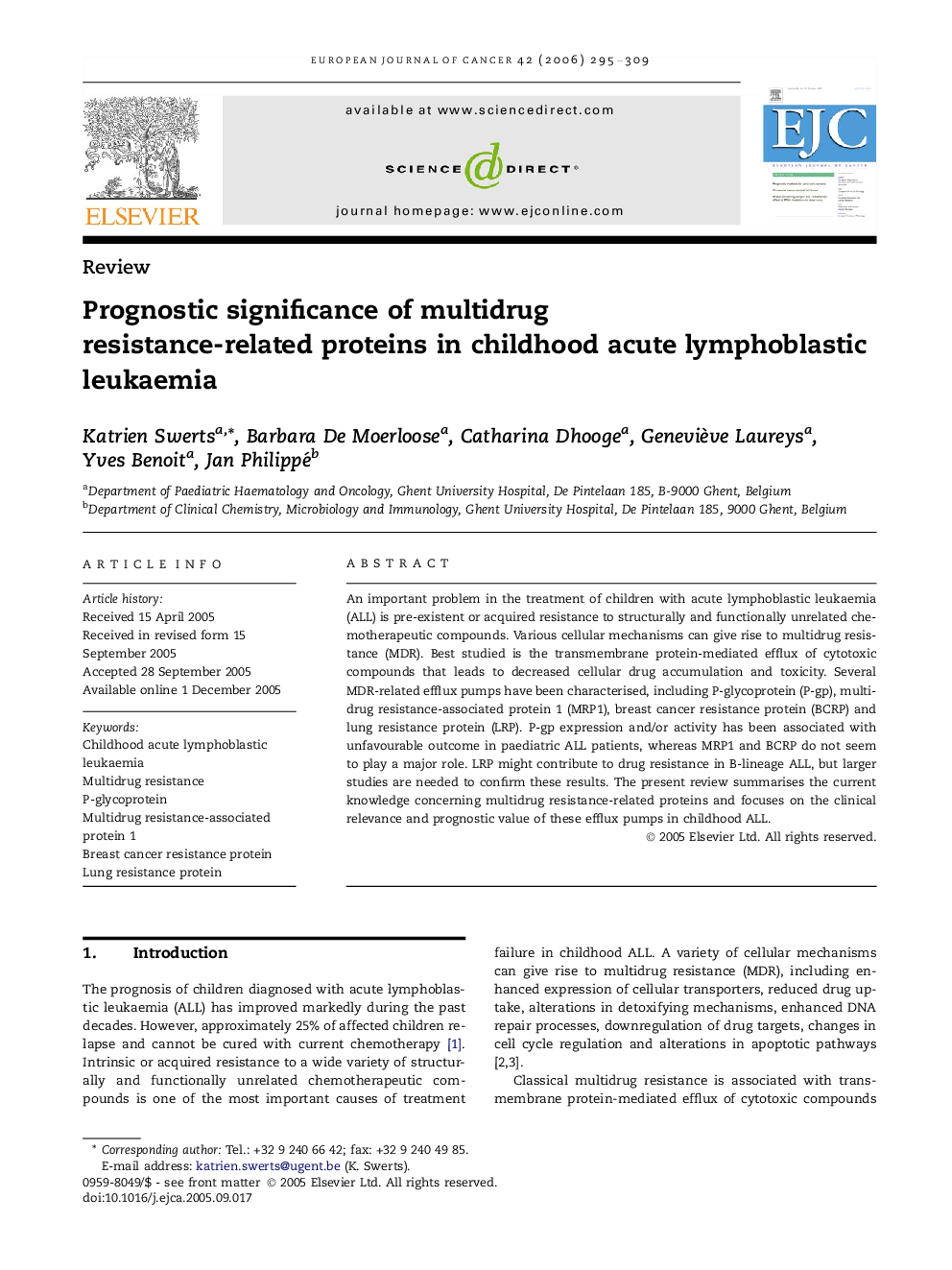| Article ID | Journal | Published Year | Pages | File Type |
|---|---|---|---|---|
| 2126124 | European Journal of Cancer | 2006 | 15 Pages |
An important problem in the treatment of children with acute lymphoblastic leukaemia (ALL) is pre-existent or acquired resistance to structurally and functionally unrelated chemotherapeutic compounds. Various cellular mechanisms can give rise to multidrug resistance (MDR). Best studied is the transmembrane protein-mediated efflux of cytotoxic compounds that leads to decreased cellular drug accumulation and toxicity. Several MDR-related efflux pumps have been characterised, including P-glycoprotein (P-gp), multidrug resistance-associated protein 1 (MRP1), breast cancer resistance protein (BCRP) and lung resistance protein (LRP). P-gp expression and/or activity has been associated with unfavourable outcome in paediatric ALL patients, whereas MRP1 and BCRP do not seem to play a major role. LRP might contribute to drug resistance in B-lineage ALL, but larger studies are needed to confirm these results. The present review summarises the current knowledge concerning multidrug resistance-related proteins and focuses on the clinical relevance and prognostic value of these efflux pumps in childhood ALL.
